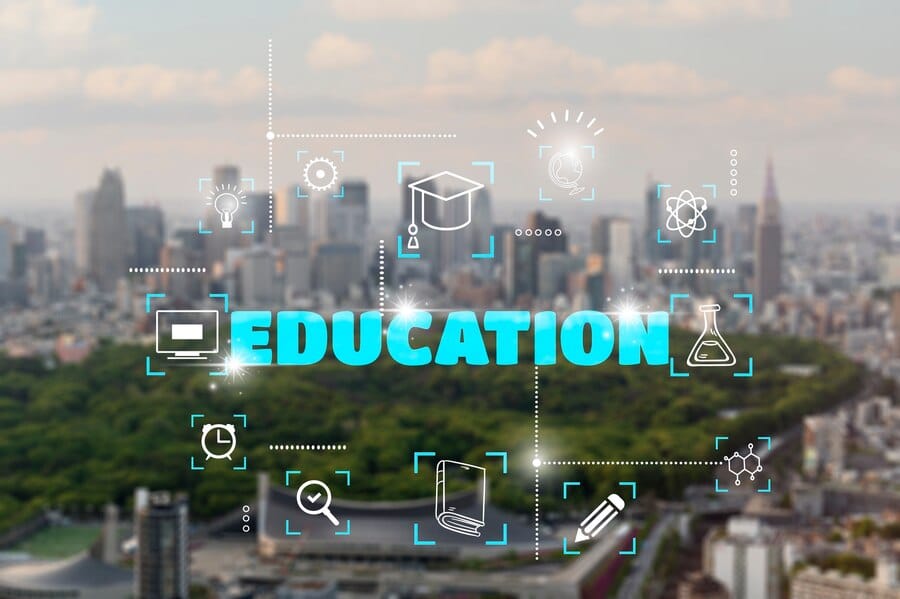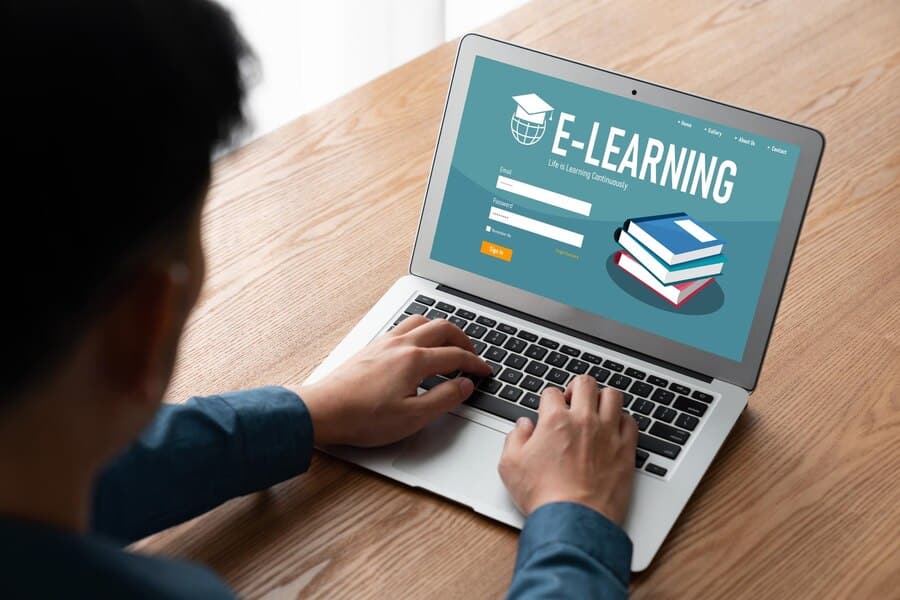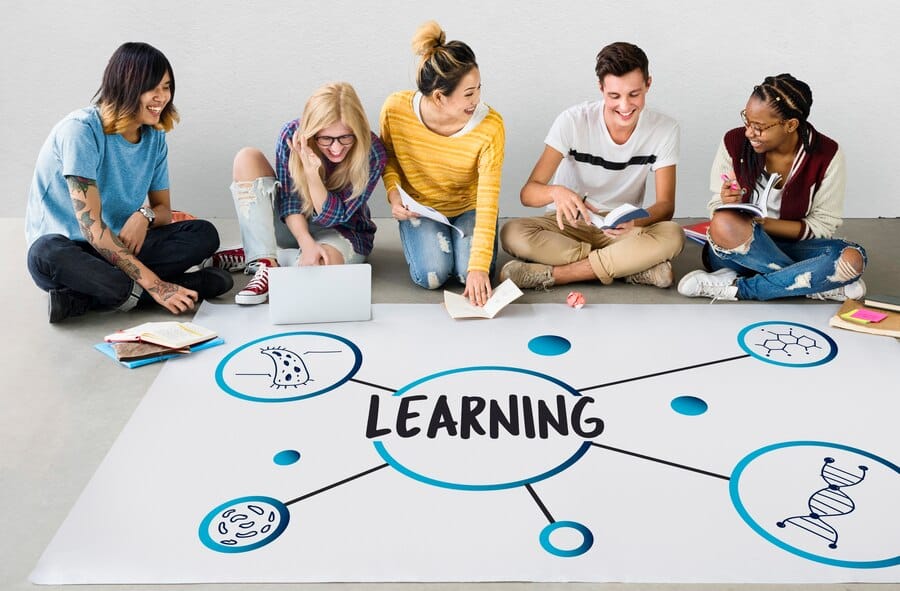Education is undergoing a monumental transformation catalyzed by technology that throws the stale textbook-and-lecture model into the swirling vortex of innovation.
With students and professionals around the world grappling with rapidly changing workplace and academic challenges, the demand for flexible, efficient, and high-quality learning tools is at an all-time high.
The revolution in technology solutions is more than a matter of convenience; it is a critical response to the needs of a modern, mobile, and diverse society.
The Shift To Online Assessments
Gone are the days when tests and exams meant nothing more than scribbling our answers on a sheet of paper. Online assessments have reshaped the very nature of testing; they allow for a personalized, adaptive approach that meets the individual learning needs of every student.
A Closer Look At The Adaptive Model
The adaptive model uses an algorithm that tailors the difficulty of questions and the path of assessment based on the student’s responses, ensuring a more accurate reading of their true abilities.
This not only reduces test anxiety but also provides instructors with detailed insights into where each student requires further support or challenge.
These assessments are not bound by the limitations of traditional time constraints, and, therefore can efficiently evaluate a broad range of skills and knowledge.
The Benefits Of Digital Platforms
Digital platforms also facilitate quicker and more comprehensive feedback, an essential ingredient in the learning process.
Timely and granular feedback empowers students to recognize their strengths and weaknesses, thus aiding in their development and goal-setting.
Furthermore, these platforms often integrate tools that support different learning styles, making education more accessible.
Learning Solutions In The Technological Era
From online tutoring to immersive virtual classroom experiences, learning solutions in the technological era are diverse and dynamic. These tools are not only about content delivery but also about fostering collaboration, critical thinking, and problem-solving skills.
The Power Of Virtual Classrooms
Virtual classrooms equipped with video conferencing and collaborative software transcend the limitations of physical distance. They facilitate peer interaction, group projects, and real-time communication with teachers or trainers.
Additionally, they can feature interactive whiteboards, multimedia resources, and even synchronized educational activities, which makes learning more engaging and productive.
On-Demand And Microlearning
The rise of on-demand educational content and microlearning offers users a library of resources that they can easily access and digest in short bursts.
These resources, often available on mobile devices, align with modern attention spans and the on-the-go lifestyle. They also support continued learning and professional development as they can be integrated into daily life and routines.
What Are The Main Components Of Digital Transformation In Education? (From An Educator’s Perspective)
There are three main aspects of digital transformation in education. Those are data reporting, data management, and data collection. Getting data from various other sources helps the school understand whether they are performing well or if they need to improve.
If the data is managed efficiently, it becomes a lot easier for educators to figure out what they require and can make quick decisions depending on accurate information. In the end, getting a complete report of the global and national data helps the schools to compare the results with other institutions and get some of their best practices from all over the world.
Data Collection
The data is collected from different external and educational stakeholders to help the quality of education. This can include administrators, parents, students, and teachers, along with other agencies who can get some valuable insights towards improving the educational process.
Data Management
The main motive of data management is speeding up the entire process of managing data with the help of a centralized system. This is going to make sure that all the stakeholders can access the accurate information in time.
Data Reporting
Global and national reporting have improved and have made it easier for all schools to measure the effectiveness of education. Moreover, this helps educators compare their performance against that of schools from all over the world.
Beyond the Buzzwords: Real-World Applications
While the concepts of online assessment and learning solutions might seem futuristic to some, they are very much a part of the present-day educational landscape around the world.
Schools and businesses are integrating these technologies to stay competitive and to provide the best possible learning experiences.
How Institutions Are Adapting
Institutions that have embraced technology solutions for education are seeing remarkable improvements in academic performance and professional development outcomes.
They’re also witnessing a shift in culture, with students and employees becoming more self-directed in their learning journeys.
The Long-Term Impact On The Job Market
The enhancements in teaching methodologies facilitated by technology can have far-reaching effects on the job market.
A workforce that is accustomed to continuous learning and development using digital tools is better equipped to handle the demands of a rapidly changing economy.
This adaptability is increasingly becoming a key job skill, with technology acting as the medium and enabler.
Sourcing The Best Technological Tools
For schools and businesses looking to leverage the latest technology solutions, finding the right tools can seem like a daunting task. It’s crucial to consider factors such as user experience, data analytics capabilities, and the scalability of a particular platform.
Recognizing Quality In Education Technology
Quality education technology is designed with the learner in mind, offering intuitive interfaces, robust support, and comprehensive content.
Data analytics features can provide institutions with vital information on course effectiveness, student progression, and areas for curricular improvement.
The Role Of Partnerships And Integration
Partnerships between educational institutions and technology providers are significant as they can lead to the development of custom solutions that meet specific needs.
Likewise, the integration of technology into a broader educational strategy is key to realizing its full potential — it should be harmonious with existing methodologies and future goals.
What Are The Potential Challenges Of Digital Transformation In Education?
Even though there are multiple benefits of digital transformation in any educational organization, there are always some challenges. One of the main issues that is most likely to arise is miscommunication or lack of collaboration and communication between the operations and development teams.
There has to be proper communication between the two teams, and they need to work effectively, or there is a good chance that the entire process is going to slow down or even get to a pause.
Another problem arises when any organization tries to incorporate too many new practices at a time. This can cause frustration and confusion among the team, as they are also trying to cope with everything new that is happening around them.
It is better to implement things slowly and introduce new practices so that everyone gets adequate time to get accustomed to the changes. And last but not least, one of the main challenges that every organization faces these days is security.
As more data is moving online every day, cyber threats are becoming more dangerous and common. Organizations need to set up comprehensive security solutions to defend their data and systems from these kinds of threats.
In Summary
The integration of online assessments and learning solutions into the fabric of education marks a pivotal change in the way we approach learning and development.
It offers a vision of education that is personalized, adaptive, and accessible — one that meets learners where they are and takes them where they need to go.
Read Also:

























